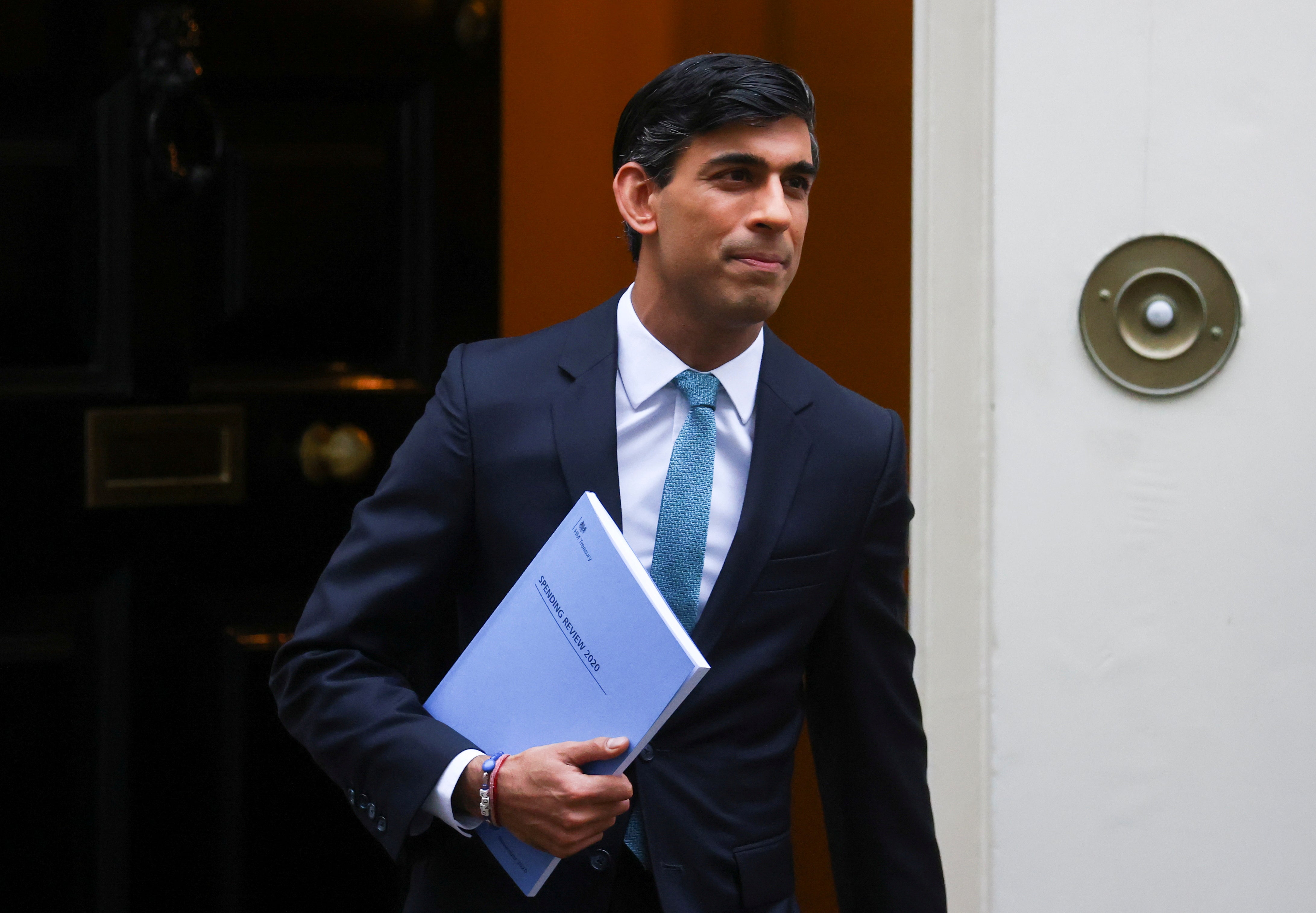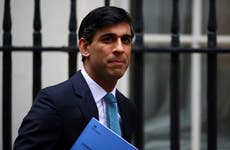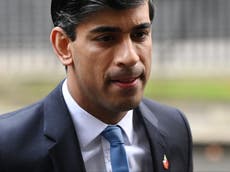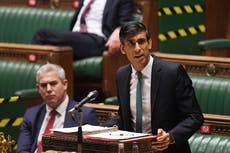Rishi Sunak is winning because there is no opposition
As the chancellor prepares to deliver his Budget next month, he knows he dominates the centre ground, writes John Rentoul


Bookmakers try to drum up business by bombarding journalists with press releases in their area of interest. So I get ones about politicians. Before the Budget in three weeks’ time I will be quoted the odds on how many sips of water Rishi Sunak will take during his speech, how often he will say “plan for jobs” and for how long he will speak.
But today I got one saying that the odds on Sunak as the next Conservative leader had halved this week. He has gone from 4/1 to 2/1, which means that the bookmaker thinks there is a 33 per cent chance the chancellor will succeed Boris Johnson.
I don’t know what has changed over the past week, apart from this bookmaker’s desire for publicity, but it is certainly true that for most of the past year in which he has been chancellor, Sunak has been the runaway favourite for the succession.
My prediction is that he will continue to be popular, even when he has to announce a further unwinding of the furlough scheme and a further reduction in support for businesses in the Budget on 3 March. That is because he faces no opposition. This is not Anneliese Dodds’s fault. The shadow chancellor is in an impossible bind. She criticises Sunak for not doing enough for this group or that group, and for not announcing early enough that he is doing something for another group so that they can have “certainty”, but she doesn’t want to be accused of advocating even more borrowing, and so she muffles her complaints in generalities and devotes a lot of her time to criticising the government for wasteful spending.
Today was a classic example of this kind of non-opposition opposition. Dodds greeted the publication of official figures showing the UK economy shrank by 10 per cent last year with exaggeration and bluster.
Her statement began by declaring: “These figures confirm that not only has the UK had the worst death toll in Europe: we’re experiencing the worst economic crisis of any major economy.” Neither of those is necessarily true. Excess deaths have been higher as a share of the population in Spain, Poland, Belgium and the Czech Republic; and figures for gross domestic product are notoriously hard to compare across countries, as Ed Conway, economics editor of Sky News, has recently pointed out.
Then she said: “Businesses can’t wait any longer.” Which is a strange thing to say when businesses have known the date of the Budget for months. But it is a way of avoiding saying that the chancellor should spend more money. “We need a smarter furlough scheme,” she said – in other words, we need to spend less money – “alongside an extension to the business rates holiday and the vital VAT reduction for hospitality and tourism,” which is probably more money that Sunak was going to spend anyway.
And she ended with the ringing condemnation: “This crisis has pulled back the curtain on the Conservatives’ insecure economy.”
Well, what else can she say when Sunak has done broadly the right thing – in particular, borrowing unintelligible sums of money to pay for vast public spending, and mobilising the “overwhelming might of the British state”, as the chancellor put it in his October party conference speech.
Historically, the fear would have been that a Conservative chancellor would hold back from such a combination of massive state intervention and Keynesian stimulus, but Sunak has done more or less what a bold Labour chancellor would do. Even John McDonnell, Dodds’s predecessor, would have struggled to make the case for significant extra spending and borrowing.
Thus Sunak was able to say, in his statement on today’s figures on the economy: “At the Budget I will set out the next stage of our Plan for Jobs, and the support we’ll provide through the next phase of the pandemic.” A plan for jobs sounds like what the Labour Party should have. Indeed, once upon a time, in 1986, at a time when an uncaring Conservative government presided over unemployment even higher than today’s, the party did produce a document entitled “Labour’s Plan for Jobs”. It is no wonder the chancellor dominates the whole of the centre ground of British politics and squeezes his unfortunate shadow to the sidelines.
There is just one consolation for Dodds about the forthcoming Budget: the convention is that the leader of the opposition, rather than the shadow chancellor, replies to the chancellor’s statement.




Join our commenting forum
Join thought-provoking conversations, follow other Independent readers and see their replies
Comments